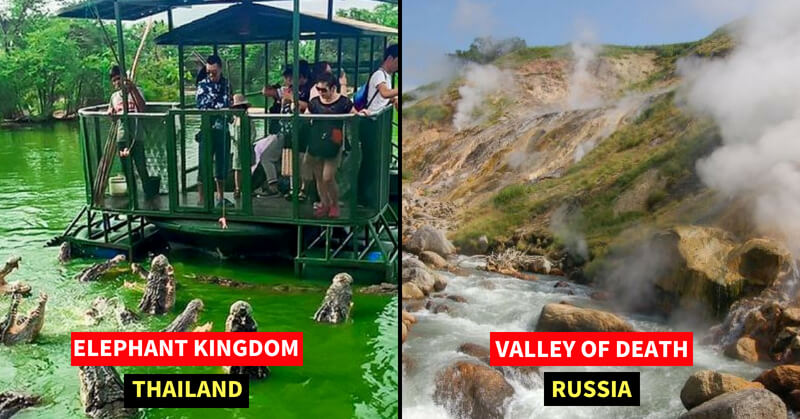7. The Elephant Kingdom in Chonburi, Thailand – Crocodile Farm
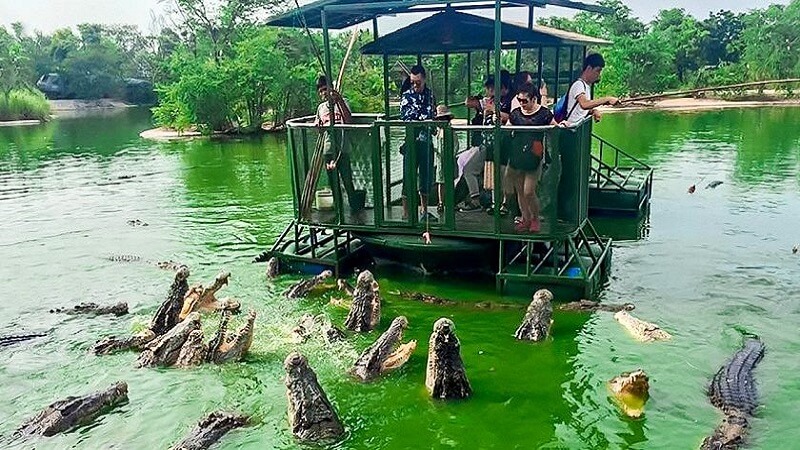
There is a Crocodile farm where tourists can see and FEED crocodiles! The raft is a thin wooden one balanced on plastic barrels and has net enclosure halfway around it. People are given fishing rods to feed the crocs. Beef or meat pieces are attached to the rods and tourists dangle those rods before the crocodiles. The reptiles then jump out of the water to catch the meat and their food.
8. Lake Natron, Tanzania – Living Creatures Die If Come Into Contact
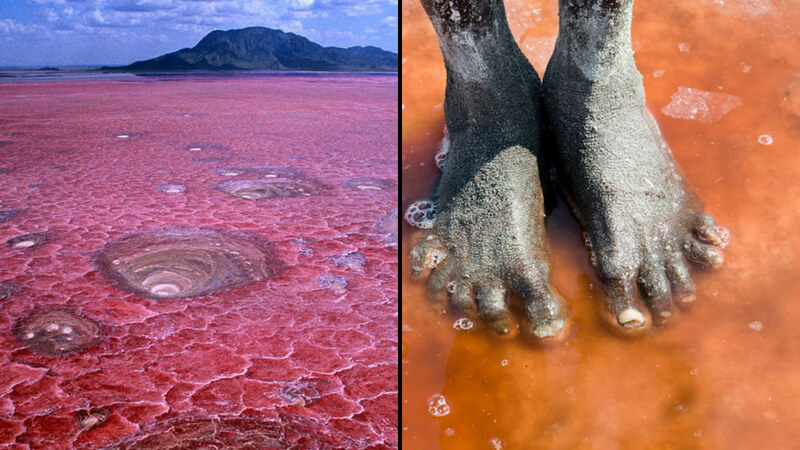
The alkali salt crust on the surface of the lake is so dangerous that all living creatures die after coming into contact with it. Swimming in this lake is strictly prohibited. The strong odor of hydrogen sulfide coming from lake’s surface won’t let you admire the stunning scenery for long.
9. Madidi National Park, Bolivia – Home To Poisonous Fauna
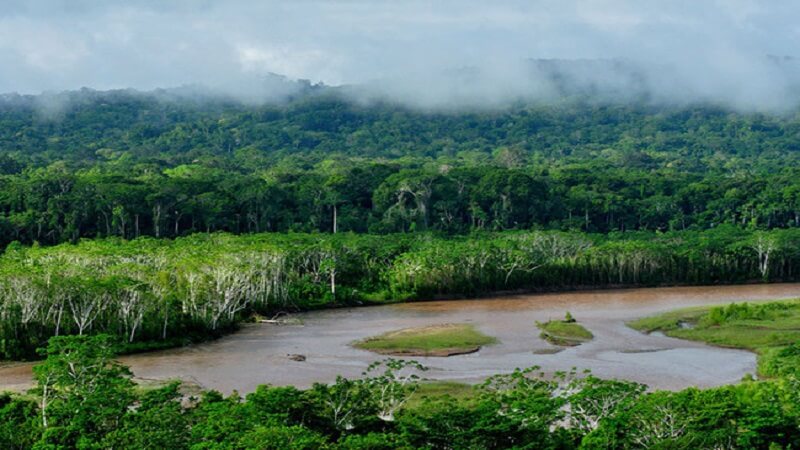
The place is home to the most poisonous and aggressive fauna in the world. Yes. Contact with any of the plants growing in this park can cause severe itching, rash, and dizziness. Even a small wound or cut, can become infected with tropical parasites.
10. Bikini Atoll, The Marshall Islands – Radioactive Wasteland

The island that looks like a paradise was actually home to numerous nuclear testing programs that turned the picturesque island into a radioactive wasteland. The inhabitants were forced to abandon their homes. Even today this remains hazardous for living organisms. The high level of radiation recorded here can cause cancer.
11. Cliffs of Moher, Ireland – High Unpredictable Winds
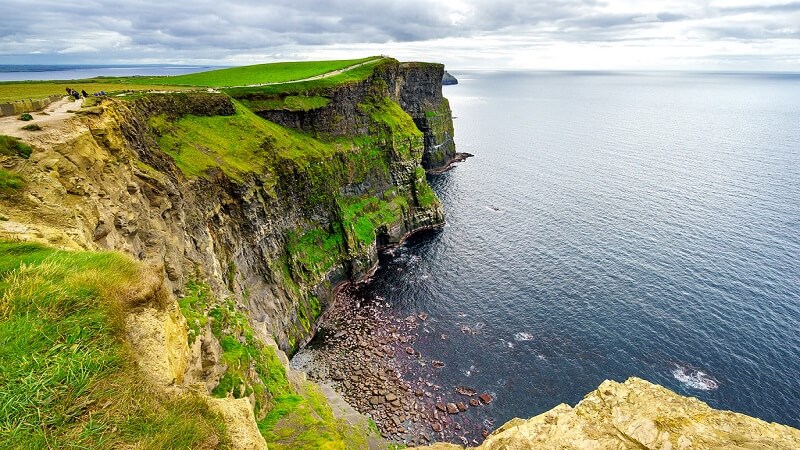
The Cliffs of Moher is the deadliest place due to its high, unpredictable winds, and equally unpredictable rains. In 2006, the wind swept a woman who was walking along the top of the cliffs. One misstep at the edge could result in a 700-foot tumble into the Atlantic. A huge chunk of the upper edge of the cliff fell into the ocean in 2010.
12. The Kokoda And Black Cat Trails, Papua New Guinea – Leech Infested Trekking
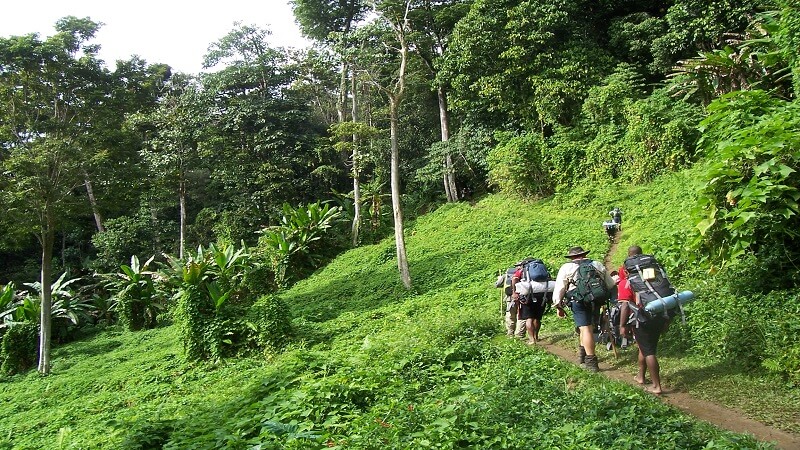
The trekking here is highly risky. The trail is nearly 60 miles of hot, humid, leech-infested territory. Though there are endless threats, thousands of visitors come every year. To complete the trail, you must hike, swim and climb. Dehydration, broken bones, leeches, and illness, attacks on groups by people wielding machetes are the biggest threats.


